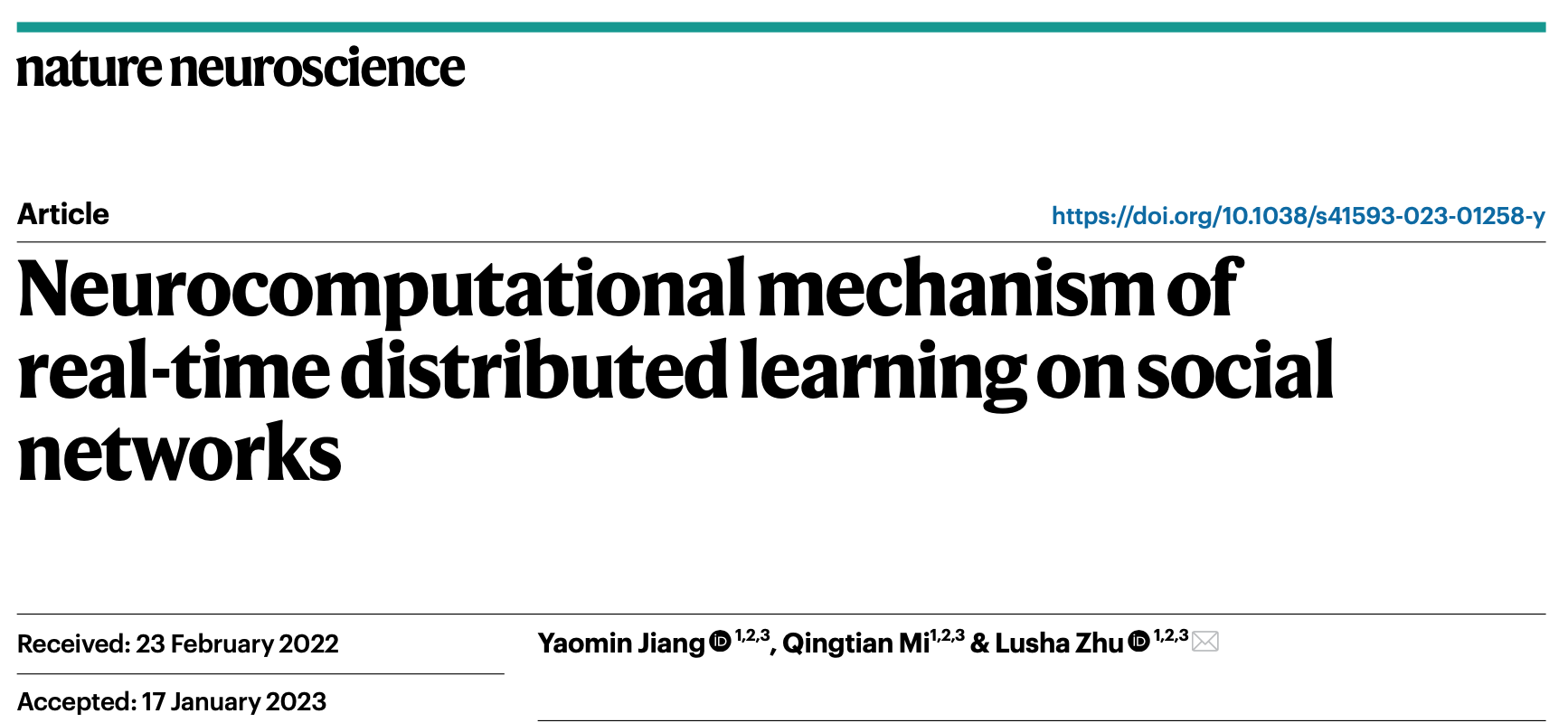Dr. Lusha Zhu: Neurocomputational mechanism of real-time distributed learning on social networks

Abstract
Social networks shape our decisions by constraining what information we learn and from whom. Yet, the mechanisms by which network structures affect individual learning and decision-making remain unclear. Here, by combining a real-time distributed learning task with functional magnetic resonance imaging, computational modeling and social network analysis, we studied how humans learn from observing others’ decisions on seven-node networks with varying topological structures. We show that learning on social networks can be approximated by a well-established error-driven process for observational learning, supported by an action prediction error encoded in the lateral prefrontal cortex. Importantly, learning is flexibly weighted toward well-connected neighbors, according to activity in the dorsal anterior cingulate cortex, but only insofar as social observations contain secondhand, potentially intertwining, information. These data suggest a neurocomputational mechanism of network-based filtering on the sources of information, which may give rise to biased learning and the spread of misinformation in an interconnected society.
Original link: https://www.nature.com/articles/s41593-023-01258-y